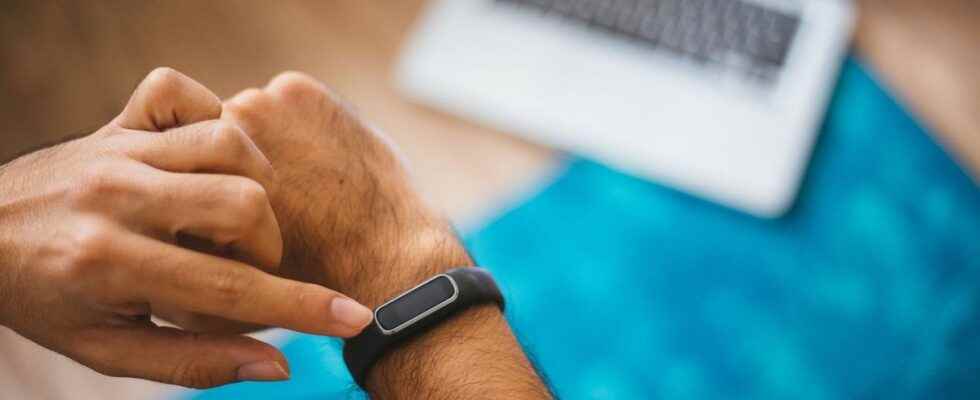Posted ,
Reading 2 mins.
in collaboration with
Dr Gérald Kierzek (Medical Director of Doctissimo)
Medical validation:
June 24, 2022
In Liechtenstein, nearly 1,200 people tested a smart bracelet capable of spotting Covid-19 even before the first symptoms appeared. A first.
This connected bracelet was able to detect the coronavirus in two thirds of the participants, even before they tested positive.
The bracelet would identify the Covid in 68% of cases
For this study, 1163 participants under the age of 50 wore a bracelet connected to a smartphone every night, from March 2020 to April 2021.
The participants had to note their activities and excesses (alcohol consumption, taking medication, use of recreational drugs, etc.) likely to affect the results.
The sensor bracelet Ava also monitored nine “biomarkers”: the volunteers’ breathing, their heart rate, their wrist-to-skin temperature and their skin perfusion (the blood supply throughout the body).
This data, usually used by women to determine their fertile periods, should help the bracelet’s algorithm to detect an infection early.
A function that the watch has brilliantly fulfilled: the fluctuations of the body have enabled it to identify the coronavirus in 45 of the 66 participants, and this from the incubation period – two days before the first symptoms appear.
The infection was then confirmed by a PCR test or an antibody test.
“During the early stages of a viral infection, sometimes even before symptoms appear, people’s heartbeats tend to speed up and their bodies get warmer. They also start breathing faster and infections can also have an effect on their blood circulation”say the researchers.
In total, the algorithm identified infection in 68% of cases.
Consult a GP online
Results to be confirmed
Nevertheless, the team of scientists concluded that this study had limitations. The sensitivity of the bracelet was less than 80% and the sample size was too small to confirm the effectiveness of the tool on a large scale.
An observation shared by Dr. Kierzek.
“With Omicron, we are dealing with a rather benign disease, so we must not stress the population unnecessarily with this type of gadget, which does not show, as a bonus, perfect efficiency..”
The tests are nevertheless continuing in the Netherlands and the researchers hope to obtain convincing results by the end of the year.
